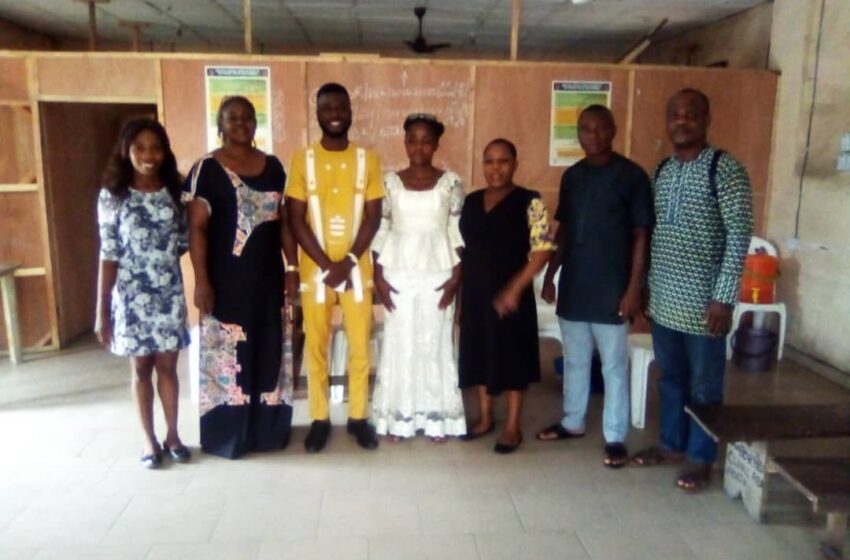Primary Health Care: Highlighting critical intervention need for Ukaegbu community

By Ugochukwu Favour, Abia
There is great danger in overlooking or failing to pay attention to the health needs of a people. The popular say that health is wealth is true. But it is not just about wealth. Quality health begats quality living, and we must not trivialize that. It is one of government’s most important responsibilities to protect the lives of her citizens – and protection begins with prevention – including prevention of diseases.
One of the critical essences and relevance of primary health care (PHC) is to ensure that people receive comprehensive care such as health promotion, disease prevention, rehabilitation, palliative care and more. It is imperative that the aforementioned get closer to the people – especially people at the grassroot.
According to the World Health Organization, PHC is “a whole-of-society approach to health that aims at ensuring the highest possible level of health and well-being and their equitable distribution by focusing on people’s needs and as early as possible along the continuum from health promotion and disease prevention to treatment, rehabilitation and palliative care, and as close as feasible to people’s everyday environment.”
But when a peoples’ needs are being ignored, you begin to see a government’s insensitivity, if not irresponsibility to the plights of a people it represents. Unfortunately, this is the situation and story of the people of Ukaegbu community of Ogbor in Abia state. The community is threatened with poor health care resulting in plethora of avoidable diseases and plenty of death. Sadly too, the challenges of people who live in rural community as Ukaegbu is rarely heard in public discourse nor get the desired attention from government.
Incidentally, Connected Development, a non-governmental organization is on the vanguard and leading the charge, raising voices for the voiceless such as Ukaegbu community. CODE’s mission is to empower marginalized communities in Africa by strengthening local communities to create platforms for dialogue, enable informed debate, and build capacities of citizens on how to hold government accountable. And this is what they are doing.
Implementing the Covid-19 Transparency and Accountability Project (CTAP) in Abia state, an initiative by CODE and BudgIT, seeking to promote accountability and transparency through the tracking of COVID-19 intervention funds across 7 African countries.
CODE through the instrumentality of Follow The Money chapter in Abia state, hosted a town hall meeting to understand the situation and status of primary health care centers in the state.
During the town hall meeting, members of the Ukaegbu community decried the poor situation of primary health care in the community. The Ward Development Chairman (WDC) of the community, Mr. Chidenu Azuka disclosed that the community don’t actually have a health care facility, saying that the community gave up her town hall which is now being used as the community health center. But that is not even the sad story, it is that the town hall being used as the health center doses not have access to clean water, toilet and electricity. And this puts a big question mark on the role of government agencies and other stakeholders to provide quality health care for the people.
With particular respect to the CTAP, the Abia state FTM chapter, reported that a research conducted by the team shows that out of the 6 PHCs visited, 3 struggles with access to clean water, while 2 do not have no access to clean water. He said the health center workers depend on rain fall and sometimes travel long distance to get water. He also lamented the fact that Ukaegbu community now use their town hall, which has no toilet facility and electricity as health center. He noted that many other health centers visited does not have facilities such as approved pharmaceutical fridge to host the covid-19 vaccine. If this situation is true, it also calls for question the standard and capacity of these centers to administer covid-19 vaccine.
There is clearly need for government intervention in this community as well as other communities in the state. Enjoying the highest possible standard of health is one of the fundamental rights of every human being without distinction. The story doesn’t have to be different for some people, especially when we know that primary health care is rooted in a commitment that ensures social justice, equity, solidarity and participation.
PHC should be the most inclusive, equitable, cost-effective approach to enhance people’s physical and mental health, as well as social well-being, especially in times of crisis such as the COVID-19 pandemic. No one must be left behind!
Finally, WHO observes that “scaling up primary health care interventions across low- and middle-income countries could save 60 million lives and increase average life expectancy by 3.7 years by 2030”. We must pay attention to this and ensure that the lives our people are protected and improved.

